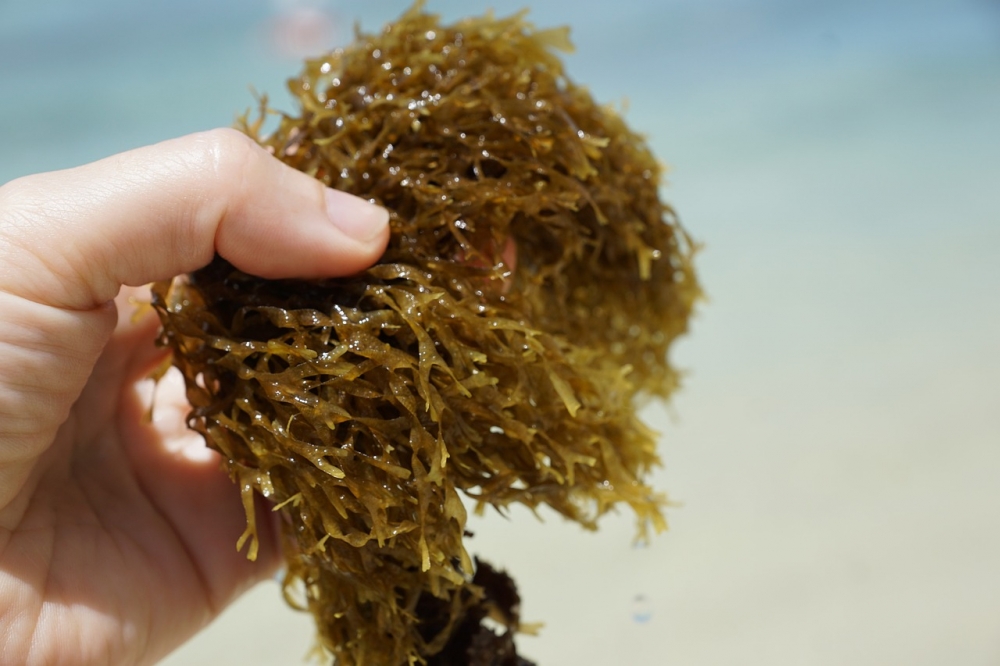

A review article goes beyond international standards to propose zero waste methodologies in the production of natural assets from marine organisms (photo: Pixabay)
A review article goes beyond international standards to propose zero waste methodologies in the production of natural assets from marine organisms.
A review article goes beyond international standards to propose zero waste methodologies in the production of natural assets from marine organisms.

A review article goes beyond international standards to propose zero waste methodologies in the production of natural assets from marine organisms (photo: Pixabay)
By Ricardo Muniz | Agência FAPESP – An article published in the journal Phycology shows that there is room to transform 100% of the raw material from marine macroalgae (seaweed) into ingredients for cosmetics using industrially available green technology.
“The article arose from the idea of connecting the development of relevant scientific research on the macroalgal universe with potential demand from the cosmetics industry,” said Leonardo Zambotti Villela, last author of the article. He has a PhD in biochemistry and molecular biology from the University of São Paulo’s Institute of Chemistry (IQ-USP) in Brazil and is a researcher affiliated with that institute’s Biochemistry and Molecular Biology Laboratory (LBBM).
“We conducted a review of the literature to explore how macroalgal extracts are currently used and see what other activities are possible and worthwhile for the cosmetics industry. We set out to build all the knowledge in the scientific and industrial literature into biorefining scenarios and strategies so that seaweed can be 100% converted into ingredients. This entailed developing a pipeline from collection or production of macroalgae to post-production processing,” Villela said.
The study is one of the outcomes of a research project supported by FAPESP. It was part of the master’s research of Mariana Hempel at the Brazilian Navy’s Admiral Paulo Moreira Institute of Marine Studies and Fluminense Federal University (UFF). Hempel’s supervisor was Pio Colepicolo, a professor at IQ-USP and head of LBBM. He has a PhD in biochemistry from USP and has taught at Harvard University (USA).
According to Villela, who was invited by Colepicolo to lead the writing of the review article, the group’s aims included the analysis of protocols that facilitate the transition from the results of scientific research to industrial applications. In his view, many aspects of biotech research are not thoroughly explored. “The industry can only use findings on toxicity and biological activity, such as anti-aging and anti-oxidizing effects, among others, if they come from experiments that strictly follow the protocols of agencies such as the OECD [Organization for Economic Cooperation and Development] and ISO [International Organization for Standardization]. Our study offers a shortcut to this transition,” he said.
More comprehensive exploration of the extracts’ potential could enable the cosmetics industry to meet the environmental sustainability, social and governance-related (ESG) requirements now in vogue throughout the corporate world.
In Thematic Projects supported by FAPESP and initiatives funded by other agencies, researchers have assembled evidence on Brazilian seaweed’s potential. “We’ve always been at the forefront of biotech and ecology, especially bioprospecting and ecotoxicological research,” Villela said. “Also, for many years we took part in the Brazilian Antarctic Program [Proantar] and collected macroalgae from the Antarctic for environmental research and to prospect for biological assets.”
The group belongs to Redealgas, a network of researchers affiliated with institutions in Brazil and elsewhere who explore the potential of algae, especially macroalgae, in terms of both biotech and social and environmental impact. “It’s a highly productive network from the standpoint of academic output as well as patents. It also works with coastal communities on social programs for their professional development,” Villela said.
The article “Macroalgae biorefinery for the cosmetic industry: basic concept, green technology, and safety guidelines” is at: www.mdpi.com/2673-9410/3/1/14.
Republish
The Agency FAPESP licenses news via Creative Commons (CC-BY-NC-ND) so that they can be republished free of charge and in a simple way by other digital or printed vehicles. Agência FAPESP must be credited as the source of the content being republished and the name of the reporter (if any) must be attributed. Using the HMTL button below allows compliance with these rules, detailed in Digital Republishing Policy FAPESP.





